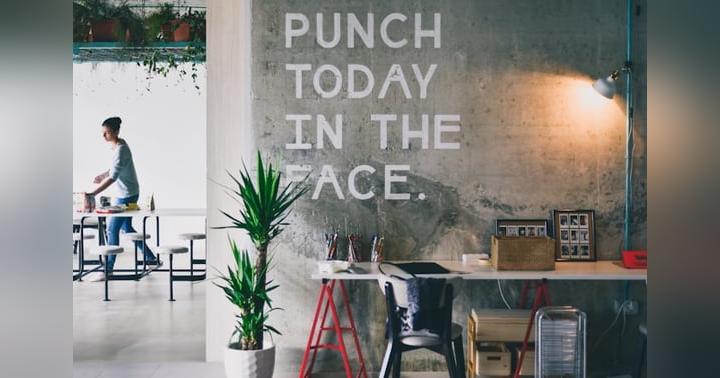Cole Simpson Wants to Reach 8 Figures in Year 1

I meet a lot of really interesting entrepreneurs — thanks to the residential cleaning business I franchised, the Freedom Formula Podcast, hanging on Twitter…there’s no shortage of folks to connect with in the space.
One of the more fascinating people I’ve met along the way is Cole Simpson. While people in his life always told him he was entrepreneurial, he laughed it off — in his mind people like Jeff Bezos and Steve Jobs were entrepreneurs, not him.
Today he owns a roofing company that earns six figures in monthly revenue. I would not only call him an entrepreneur, but a very successful one. He has certainly found some sort of freedom, and so I had to chat with him to learn more.
How it Started
After a stint with a snow cone stand franchise that went terribly wrong, Cole was looking for his next venture. He knew he wanted to be in the home services industry and decided to try his luck with a different franchise: a roofing business.
He settled on Mighty Dog Roofing — it was available where he was and was in its third year of operation. Cole felt like it was in the sweet spot of having experienced some success, but was still emerging. It was predominantly a sales and marketing model. Cole had worked in real estate, which is arguably all sales, so he decided to go for it.
At the time of writing, that was five months ago. And after just five months in, his business was earning between $200,000 and $500,000 per month.
It’s All About Risk Mitigation
Cole says that much of his success is thanks to his ability to mitigate risk and make asymmetrical bets quickly and consistently. He adds that a lot of people get stuck in over-analyzation and analysis paralysis. They look at what he does and balk at the risks he takes.
But often, they aren’t risks. Rather, he takes asymmetrical bets that he could afford to lose. For example, he makes five to ten “risky” bets with the thought that even if only two of them pay off, they will pay for the eight other mistakes.
It’s a really interesting way to approach business.
For Cole, entrepreneurship is just throwing stuff against the wall, moving quickly, and figuring out what’s working and what’s not. It’s a lot of trial and error.
I think he’s figured risk mitigation out a lot sooner than many other entrepreneurs. Humans tend to lean toward loss aversion more than winning. Cole understood this early on and it’s part of what allows him to make such big bets.
Unsustainable Systems
Cole works on his roofing business full-time. When asked if he thinks he could have pulled it off working only part-time, he says sure, but he wouldn’t have been able to reach the same level of revenue so quickly.
He jokes and says that he took the exact opposite approach of an absentee owner. On day one he hired an office manager, a general manager, and a sales manager without any revenue. He figured that most people in his position put in about 50 hours a week and are responsible for everything. He wanted to do more.
From day one, he has been working 60-70 hours per week — and so have his sales manager, general manager, and office manager. Conservatively, that’s about 230 hours of work per week that are driving the business.
Now, these days, I’m not one to advocate too much for hustle culture of this level. But, I like that Cole calls what he’s doing an “unsustainable system.” He knows that he and his team won’t be able to operate like this forever — it’s a big push as they work toward $10 million per year in revenue. Once they’re there, they’ve already done the hard thing and can create a sustainable system to keep it going.
He adds that it takes most companies to get there in two to three years. He hopes to get there in year one. It’s a big goal — a BHAG for sure — but he’s confident they’ll get there.
What Have You Been Given?
I had to ask: Why go so big?
He says that on one level, he just loves the game of entrepreneurship, and money is the chips to winning the game.
On another level, he refers back to a Christian parable in which folks are given money to do with what they will for one year. The caveat is that they need to show what they actually did with it after one year. Cole says that the point is this: what have you been given? And are you a good steward of what you’ve been given?
He uses this as inspiration for his life and his business. If he can build a company and make a few millions with it, then he will have the ability to give his money away to support change — be a good steward, if you will.
It’s a very different mindset to have and one that inspires me.
Cole may not have found financial freedom just yet but he’s working on it. What struck me throughout of conversation is what he has found: freedom from stress and pressure.
Yes, he’s moving big rocks every week. But he doesn’t let it get to him. He has his eye on a very specific goal and he moves toward it with blinders on.
It goes to show that financial freedom doesn’t always have to be the only type of freedom to strive for.
Freedom from stress and pressure also sounds really, well, freeing, doesn’t it?
Photo by Tiago Rodrigues on Unsplash
This article was written by Neel from MaidThis Franchise, a remote-local franchise opportunity for people looking to escape the rat race and reach financial freedom. Learn more here.






